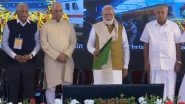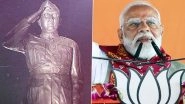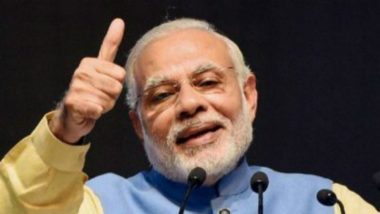Mumbai, February 26: The air strike on terror camps in Pakistan is a positive for the markets as it illustrates a "decisiveness" in foreign policy and increases the chances of Narendra Modi to retain power after the forthcoming polls, say analysts. The comments come in the wake of concerns shown by investors in the immediate aftermath of the strikes in Pakistani territory which markets opening with a huge gap down.
"We see this panic gap down and any further slide as a buying opportunity which has been the case in past such events as well. And this gives higher odds to the Modi government staying on post-elections," Sameer Kalra, an equity research analyst and founder at Target Investing, said in a note Tuesday. Economists at SBI said the markets is likely to gain after the strikes as they will look at the action as the one which builds a positive deterrence illustrating a decisiveness in our foreign and national security policy. Surgical Strike 2: Tension Mounts in Kashmir After Indian Air Force Air Strikes on Pakistan's Terror Camps.
In a note, SBI economists gave an account of how the markets reacted to the earlier armed conflicts like after the cross-border action by India following the Uri attack in 2016 and also the Kargil conflict, where Pakistani intruders were pushed back. It said during the Kargil conflict between May and July 1999, leading stock indices showed an initial decline but strong recovery thereafter, while after Uri action, the Sensex gained 100 points and so was the rupee.
The SBI report also deemed to suggest that just like the previous actions, conflicts are "more localised in nature".
It can be noted that the markets opened in the red Tuesday, after the strikes that were reported to have been carried out in the wee hours. There was some recovery in the indices later and the BSE benchmark was trading 0.60 percent down at 1510 hrs. In a swift and precise air strike following the Pulwama attack, India bombed and destroyed Jaish-e-Mohammed's biggest training camp in Pakistan early Tuesday, killing a "very large number" of terrorists, trainers and senior commanders.
The operation, described as a non-military, pre-emptive strike, was welcomed by the entire political spectrum and military experts who had been advocating retribution after the February 14 suicide attack on a CRPF convoy in Pulwama, killing 40 jawans, and claimed by JeM.













 Quickly
Quickly


